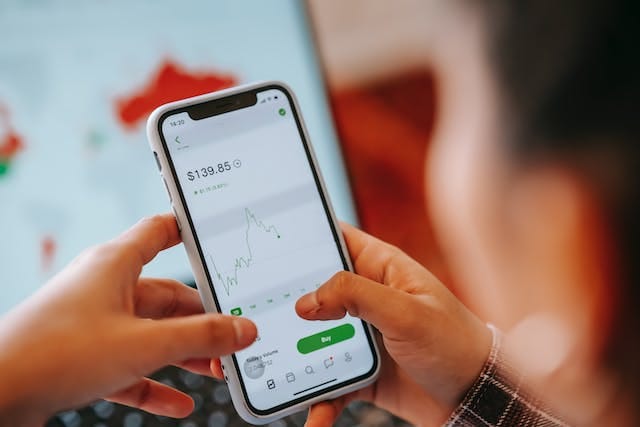Unlocking the Future of Forex Trading: Embracing Emerging Trends in the Currency Market
Unlock the future of Forex trading by embracing emerging trends in the currency market. Explore innovative technologies, evolving strategies, and transformative shifts shaping Forex.

Understanding the Forex market and its emerging trends
As an aspiring trader or an individual interested in the world of finance, it is crucial to gain a comprehensive understanding of the Forex market and its emerging trends. The foreign exchange market, also known as Forex, is a decentralized global marketplace where the buying, selling, and exchanging of currencies take place. It is the largest and most liquid market in the world, with a daily trading volume exceeding $6 trillion. The Forex market operates 24 hours a day, five days a week, and it is influenced by a wide range of factors, including geopolitical events, economic data, and market sentiment.
In recent years, the Forex market has witnessed the emergence of several trends that are reshaping the way currency trading is conducted. These trends are driven by technological advancements, changes in market dynamics, and evolving consumer preferences. By staying informed about these trends, traders can adapt their strategies and take advantage of new opportunities in the currency market. From the adoption of algorithmic trading to the integration of blockchain technology, understanding these trends is essential for staying ahead in the fast-paced world of Forex trading.
The dynamic nature of the Forex market makes it imperative for traders to stay updated on the latest trends and developments. As the market continues to evolve, embracing emerging trends is key to unlocking the full potential of Forex trading and achieving sustainable success in this dynamic industry.
The impact of technology on Forex trading
Technology has undoubtedly transformed the landscape of Forex trading, revolutionizing the way currencies are bought and sold in the global market. The advent of electronic trading platforms and the widespread access to the internet have democratized the Forex market, allowing traders of all levels to participate in currency trading from virtually anywhere in the world. This increased accessibility has led to a surge in trading activity and has contributed to the market's unprecedented liquidity.

Moreover, technological advancements have also paved the way for the development of sophisticated trading tools and analytical software, enabling traders to make more informed decisions and execute trades with greater precision. From real-time market data feeds to advanced charting and technical analysis tools, technology has empowered traders with the resources needed to navigate the complexities of the Forex market effectively.
In addition to empowering individual traders, technology has also facilitated the integration of various trading strategies, including algorithmic trading and artificial intelligence (AI), into the Forex market. These technologies have the potential to automate trading processes, optimize trade execution, and enhance risk management, thereby reshaping the way trading is conducted in the currency market.
The impact of technology on Forex trading is undeniable, and as the pace of technological innovation accelerates, traders must be prepared to adapt to the evolving landscape of the market and leverage technology to their advantage.
Embracing algorithmic trading and AI in Forex
The rise of algorithmic trading and artificial intelligence (AI) has ushered in a new era of efficiency and precision in Forex trading. Algorithmic trading, also known as algo trading, involves the use of computer programs and algorithms to execute trades automatically based on predefined criteria. These criteria may include price movements, technical indicators, or statistical arbitrage opportunities, among others. By leveraging algorithmic trading, traders can capitalize on fleeting market opportunities and execute trades with speed and accuracy that are beyond the capabilities of manual trading.
Furthermore, the integration of AI and machine learning algorithms has augmented the capabilities of algorithmic trading systems, enabling them to adapt to changing market conditions and identify patterns that may elude human traders. AI-powered trading systems can analyze vast amounts of data, detect correlations, and make predictions with a level of sophistication that is reshaping the way trading is conducted in the Forex market.
As algorithmic trading and AI continue to gain traction in the currency market, traders are presented with the opportunity to enhance their trading strategies, minimize human error, and capitalize on market inefficiencies. Embracing these technologies can provide traders with a competitive edge and position them to thrive in the rapidly evolving landscape of Forex trading.
The rise of digital currencies and blockchain technology in the Forex market
The emergence of digital currencies, led by the pioneering cryptocurrency Bitcoin, has introduced a new asset class to the Forex market and has sparked a wave of innovation in the realm of currency trading. Digital currencies, or cryptocurrencies, are decentralized digital assets that utilize cryptographic principles to secure transactions and control the creation of new units. The proliferation of cryptocurrencies has challenged traditional notions of currency and has catalyzed a paradigm shift in the way value is exchanged and stored.
In parallel with the rise of digital currencies, blockchain technology has emerged as a disruptive force with far-reaching implications for the Forex market. Blockchain, the underlying technology that powers cryptocurrencies, is a distributed ledger that records transactions across a network of computers in a secure, transparent, and immutable manner. This technology has the potential to streamline settlement processes, enhance transparency, and mitigate counterparty risk in currency trading.
The integration of digital currencies and blockchain technology in the Forex market represents a significant departure from conventional currency trading practices and has given rise to new opportunities and challenges for traders. By understanding the dynamics of this emerging landscape, traders can position themselves to leverage the potential of digital currencies and blockchain technology while navigating the associated risks.
Automated trading systems and market analysis tools
In the rapidly evolving landscape of Forex trading, the adoption of automated trading systems and market analysis tools has become increasingly prevalent among traders seeking to streamline their operations and enhance their trading performance. Automated trading systems, often referred to as trading robots or expert advisors, are software programs that are designed to execute trades and manage positions automatically based on pre-established parameters. These systems can operate around the clock, execute trades with precision, and alleviate the emotional biases that may impact human traders.
Furthermore, market analysis tools, such as technical indicators, charting software, and economic calendars, play a pivotal role in equipping traders with the insights needed to make informed trading decisions. These tools provide traders with valuable market intelligence, facilitate comprehensive technical and fundamental analysis, and empower them to identify potential trade opportunities and manage risk effectively.
By embracing automated trading systems and leveraging market analysis tools, traders can enhance their efficiency, optimize their trading strategies, and capitalize on market movements with a level of precision that is essential for navigating the complexities of the Forex market.
Financial technology (FinTech) and its role in Forex trading
The intersection of finance and technology, often referred to as financial technology or FinTech, has reshaped the landscape of Forex trading, introducing innovative solutions that are altering the way currencies are traded and managed. FinTech encompasses a broad spectrum of technologies and platforms, including electronic payment systems, peer-to-peer lending, robo-advisors, and mobile trading applications, among others. These advancements have democratized access to financial services, streamlined transaction processes, and expanded the scope of opportunities available to traders in the Forex market.

Moreover, the integration of FinTech solutions has facilitated the development of user-friendly trading platforms, intuitive trading interfaces, and seamless connectivity to global financial markets. These platforms enable traders to execute trades, monitor market developments, and manage their portfolios with unprecedented ease and efficiency, thereby enhancing the overall trading experience.
As FinTech continues to evolve, its role in Forex trading is poised to expand further, presenting traders with innovative tools and technologies that can optimize their trading practices and empower them to navigate the complexities of the currency market with confidence and proficiency.
Effective risk management strategies in the evolving currency market
In the dynamic and ever-changing landscape of the currency market, effective risk management is a cornerstone of successful trading practices. The Forex market is characterized by inherent volatility, geopolitical uncertainties, and economic fluctuations, all of which underscore the importance of implementing robust risk management strategies to safeguard trading capital and mitigate potential losses.
Diversification, position sizing, and the use of stop-loss orders are fundamental components of risk management that enable traders to allocate their capital prudently, minimize exposure to adverse market movements, and preserve their trading equity. Additionally, the adoption of risk assessment tools, scenario analysis, and stress testing methodologies can provide traders with the insights needed to evaluate and mitigate potential risks in their trading activities.
Furthermore, embracing risk management principles that align with individual risk tolerance and trading objectives is essential for navigating the evolving currency market with resilience and discipline. By implementing effective risk management strategies, traders can fortify their trading practices, preserve capital in adverse market conditions, and position themselves for sustainable success in the dynamic landscape of Forex trading.
The impact of cryptocurrency on Forex trading
The integration of cryptocurrencies into the Forex market has introduced a new dimension of opportunity and complexity, reshaping the dynamics of currency trading and prompting traders to adapt to the nuances of this emerging asset class. Cryptocurrencies, with their decentralized nature and distinct market behavior, have carved a niche within the Forex market, offering traders the potential to diversify their portfolios and capitalize on the volatility and unique characteristics of digital assets.
However, the inclusion of cryptocurrencies in the Forex market has also raised considerations related to regulatory compliance, market liquidity, and security, necessitating a nuanced approach to incorporating these assets into trading strategies. Traders must navigate the intricacies of cryptocurrency trading, including understanding the underlying technologies, assessing market dynamics, and managing the associated risks, to effectively integrate cryptocurrencies into their trading activities.
Moreover, the impact of cryptocurrencies on Forex trading extends beyond trading opportunities, influencing the development of trading platforms, market infrastructure, and regulatory frameworks. By staying informed and adapting to the evolving landscape shaped by cryptocurrencies, traders can position themselves to harness the potential of digital assets while navigating the complexities and risks inherent in this burgeoning segment of the currency market.
Integrating machine learning into trading practices
The integration of machine learning, a subset of artificial intelligence, into Forex trading practices has ushered in a new era of data-driven decision-making and predictive analytics, empowering traders to harness the power of algorithms and statistical models to optimize their trading strategies. Machine learning algorithms can analyze vast datasets, detect patterns, and extrapolate insights that enable traders to identify correlations, forecast market movements, and make informed trading decisions with a higher degree of accuracy.
Furthermore, machine learning models can adapt to changing market conditions, learn from historical data, and refine their predictive capabilities over time, thereby enabling traders to stay attuned to evolving market dynamics and capitalize on emerging opportunities. By leveraging machine learning, traders can augment their analytical capabilities, automate repetitive tasks, and gain a competitive edge in the fast-paced and dynamic environment of Forex trading.
As machine learning continues to evolve and gain traction in the currency market, traders are presented with the opportunity to enhance their trading practices, optimize risk management, and unlock new dimensions of insight and efficiency in their pursuit of success in Forex trading.
Regulatory changes and their influence on Forex trading
The Forex market is subject to a complex web of regulatory frameworks, spanning across different jurisdictions and governing bodies, which exert a profound influence on the operational landscape and trading practices within the currency market. Regulatory changes, ranging from amendments to trading rules and reporting requirements to the introduction of new compliance standards and oversight mechanisms, can significantly impact the conduct of Forex trading and the obligations imposed on market participants.
Moreover, regulatory developments related to digital currencies, blockchain technology, and the integration of FinTech solutions in Forex trading are shaping the future of the currency market, influencing market dynamics, and redefining the parameters within which traders operate. By staying abreast of regulatory changes and ensuring compliance with evolving standards, traders can navigate the complexities of the regulatory environment and align their trading practices with the prevailing legal and operational requirements.
In the face of regulatory changes, traders must remain vigilant, adapt to evolving compliance obligations, and leverage regulatory developments as opportunities to enhance transparency, accountability, and operational efficiency in their pursuit of success in the Forex market.
Global economic indicators and their significance in currency trading
The Forex market is intricately linked to global economic developments, and the interpretation of key economic indicators plays a pivotal role in shaping trading decisions and market sentiment. Economic indicators, ranging from gross domestic product (GDP) growth rates and employment figures to inflation rates and trade balances, provide valuable insights into the health of national economies and the underlying forces driving currency valuations.
Traders must remain vigilant in monitoring and interpreting economic indicators to gauge the strength of economies, anticipate central bank policies, and assess the potential impact of macroeconomic events on currency pairs. By understanding the significance of economic indicators and their implications for currency trading, traders can make informed decisions, identify trading opportunities, and navigate market volatility with a heightened level of insight and preparedness.
Furthermore, the interplay between global economic indicators and currency valuations underscores the interconnectedness of the Forex market with the broader economic landscape, underscoring the importance of staying informed and responsive to economic developments in the pursuit of success in currency trading.
Exploring innovative trading platforms and their features
The evolution of Forex trading has been propelled by the development of innovative trading platforms that offer advanced features, intuitive interfaces, and seamless connectivity to global financial markets. These platforms, ranging from desktop applications and web-based interfaces to mobile trading apps, provide traders with the tools and resources needed to execute trades, analyze market data, and manage their portfolios with precision and efficiency.
Moreover, the integration of innovative trading platforms with cutting-edge technologies, such as real-time market data feeds, advanced charting tools, and social trading capabilities, has redefined the trading experience and expanded the scope of opportunities available to traders. These platforms enable traders to access a diverse range of financial instruments, execute trades with speed and accuracy, and engage with a global community of traders, thereby fostering a dynamic and immersive trading environment.
By exploring innovative trading platforms and familiarizing themselves with their features, traders can optimize their trading experience, capitalize on emerging opportunities, and position themselves for success in the dynamic and competitive landscape of Forex trading.
The future of high-frequency trading and cross-border transactions
The future of Forex trading is inexorably linked to the evolution of high-frequency trading (HFT) and the facilitation of cross-border transactions, two trends that are reshaping the dynamics of the currency market and presenting traders with new opportunities and challenges. High-frequency trading, characterized by rapid trade execution and algorithm-driven strategies, has gained prominence in the Forex market, enabling traders to capitalize on fleeting market inefficiencies and execute trades with exceptional speed and precision.
Furthermore, advancements in financial technology and the integration of blockchain-based solutions are fostering innovations in cross-border transactions, streamlining settlement processes, and expanding the scope of international trade and investment. These developments are redefining the parameters of currency trading, enhancing market liquidity, and reshaping the landscape of global finance.
As the future of Forex trading unfolds, traders must remain attuned to the implications of high-frequency trading and the evolution of cross-border transactions, adapt their strategies




